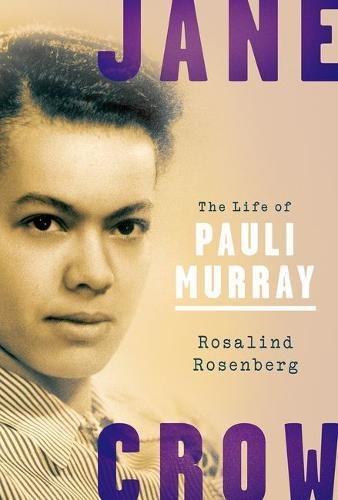

Most ebook files are in PDF format, so you can easily read them using various software such as Foxit Reader or directly on the Google Chrome browser.
Some ebook files are released by publishers in other formats such as .awz, .mobi, .epub, .fb2, etc. You may need to install specific software to read these formats on mobile/PC, such as Calibre.
Please read the tutorial at this link: https://ebookbell.com/faq
We offer FREE conversion to the popular formats you request; however, this may take some time. Therefore, right after payment, please email us, and we will try to provide the service as quickly as possible.
For some exceptional file formats or broken links (if any), please refrain from opening any disputes. Instead, email us first, and we will try to assist within a maximum of 6 hours.
EbookBell Team

4.0
6 reviews"Euro-African-American activist Pauli Murray was a feminist lawyer who played pivotal roles in both the modern civil rights and women's movements, and later become the first woman ordained a priest by the Episcopal Church. Born in 1910 and identified as female, she believed from childhood that she was male. Jane Crow is her definitive biography, exploring how she engaged the arguments used to challenge race discrimination to battle gender discrimination in the 1960s and 70s. Before there was a social movement to support transgender identity, she mounted attacks on all arbitrary categories of distinction. In the 1950s, her legal scholarship helped Thurgood Marshall to shift his course and attack segregation frontally in Brown v. Board of Education. In the 1960s, Murray persuaded Betty Friedan to help her found an NAACP for women, which Friedan named NOW. Appointed by Eleanor Rossevelt to the President's Commission on the Status of Women in 1962, she advanced the idea of Jane Crow, arguing that the same reasons used to attack race discriminatio n could be used to battle gender discrimination. In the early 1970s, Murray provided Ruth Bader Ginsberg with the argument Ginsberg used to persuade the Supreme Court that the Fourteenth Amendment to the Constitution protects not only blacks but also women--and potentially other minority groups--from discrimination. helping to propel Ruth Bader Ginsberg to her first Supreme Court victory for women's rights and greatly expanding the idea of equality in the process. Murray accomplished all of this as someone who would today be identified as transgender but who, due to the limitations of her time, focused her attention on dismantling systematic injustices of all sorts, transforming the idea of what equality means" --
"Euro-African-American activist Pauli Murray was a feminist lawyer who played pivotal roles in both the modern civil rights and women's movements, and later become the first woman ordained a priest by the Episcopal Church. Born in 1910 and identified as female, she believed from childhood that she was male. Jane Crow is her definitive biography, exploring how she engaged the arguments used to challenge race discrimination to battle gender discrimination in the 1960s and 70s. Before there was a social movement to support transgender identity, she mounted attacks on all arbitrary categories of distinction. In the 1950s, her legal scholarship helped Thurgood Marshall to shift his course and attack segregation frontally in Brown v. Board of Education. In the 1960s, Murray persuaded Betty Friedan to help her found an NAACP for women, which Friedan named NOW. Appointed by Eleanor Rossevelt to the President's Commission on the Status of Women in 1962, she advanced the idea of Jane Crow, arguing that the same reasons used to attack race discriminatio n could be used to battle gender discrimination. In the early 1970s, Murray provided Ruth Bader Ginsberg with the argument Ginsberg used to persuade the Supreme Court that the Fourteenth Amendment to the Constitution protects not only blacks but also women--and potentially other minority groups--from discrimination. helping to propel Ruth Bader Ginsberg to her first Supreme Court victory for women's rights and greatly expanding the idea of equality in the process. Murray accomplished all of this as someone who would today be identified as transgender but who, due to the limitations of her time, focused her attention on dismantling systematic injustices of all sorts, transforming the idea of what equality means"